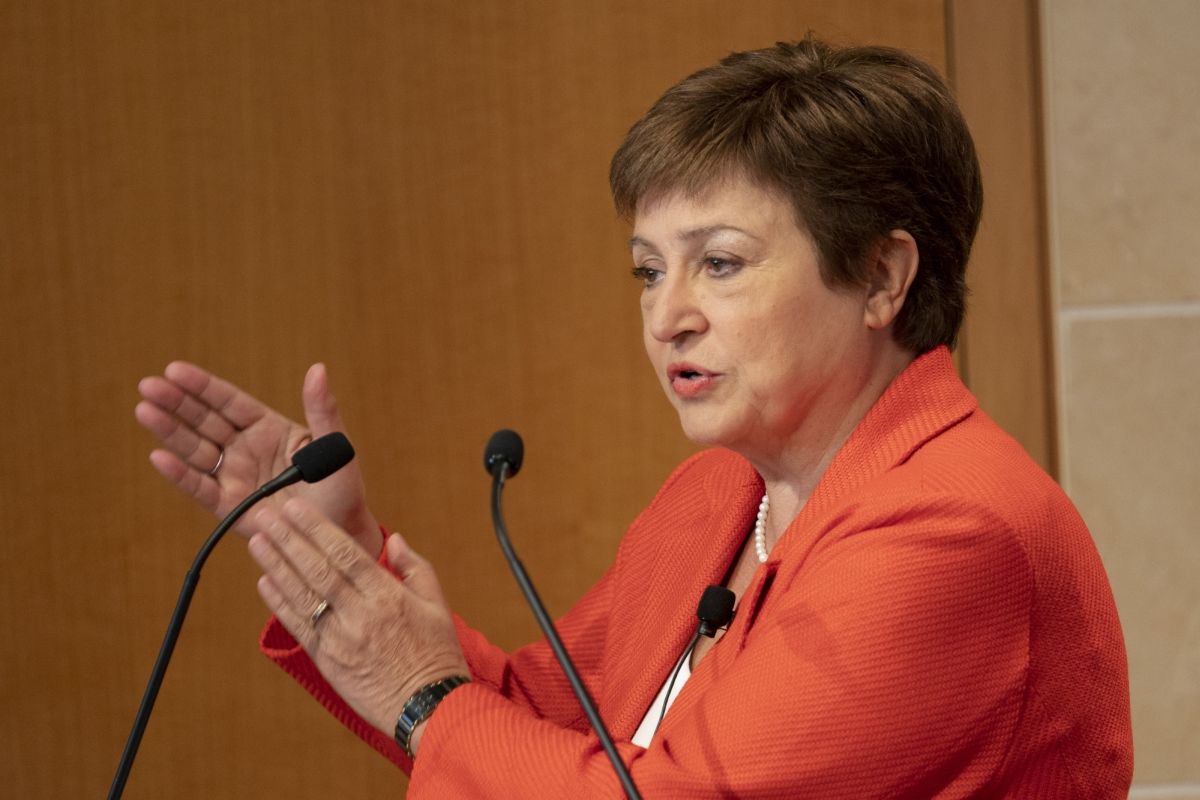Putin plays with f ire in his new doctrine
Of late Vladimir Putin has shifted Russia’s nuclear doctrine to a more directly and openly retaliatory posture in response to any attack by Ukraine or any NATO country using longer-range US missiles.
According to official data published on Tuesday, “China’s international trade growth slowed to 3.4 per cent in 2019, affected by the trade war with the US, with which exchanges decreased 10.7 per cent.

International Monetary Fund (IMF) Managing Director Kristalina Georgieva (Photo: IANS)
The newly signed US-China phase-one trade deal will reduce the uncertainty that has impeded global economic growth, according to the International Monetary Fund (IMF) Managing Director Kristalina Georgieva.
Georgieva said, “It is a welcoming sign that we now have the phase-one deal, sign in terms of reducing some of the uncertainty,” during an event hosted by Peterson Institute for International Economics, a Washington-based thinktank.
The IMF chief said her organisation is making some projections around the impact of more certainty, which will be shared on Monday as part of the World Economic Outlook to be released at the World Economic Forum in Davos, Switzerland, Xinhua reported.
Advertisement
According to official data published on Tuesday, “China’s international trade growth slowed to 3.4 per cent in 2019, affected by the trade war with the US, with which exchanges decreased 10.7 per cent.
There was a sharp increase in pork imports (75 per cent), a product in great demand in China and for which supply was severely affected by the African swine fever epidemic.
One of the commercial year’s notable relationships was with the Association of Southeast Asian Nations, a regional bloc with which China raised its businesses by 14.1 per cent and took the place of the US as Beijing’s second-largest trading partner.
In October, Georgieva warned that trade tensions were “taking a toll” on global growth, at a time when the global economy was going through a “synchronised slowdown”.
According to the IMF’s earlier calculation, the cumulative effect of the US-China trade conflict, provided no actions taken, could mean a loss of 0.8 per cent of global GDP, or around $700 billion by 2020.
After nearly two years of conflict and the exchange of punishing tariffs that have had a negative impact on business investment and global economic growth, President Donald Trump last month announced a “phase one” trade deal with Beijing.
On December 21, President Trump said that the United States and China would “very shortly” sign their so-called Phase One trade pact.
The Phase One deal was announced as part of a bid to end the months-long tit-for-tat trade war between the world’s two largest economies, which has roiled markets and hit global growth.
Chinese President Xi Jinping said that phase one economic and trade deal between China and the US does not only benefits the two economic.
The “phase one” is a partial resolution that is expected to see China boost imports of US agricultural and other goods, while Washington has eased massive tariffs on Chinese imports.
In September, the US had imposed fresh tariffs on $112 billion worth of Chinese imported goods, marking a sharp escalation of the bruising trade war between the world’s two largest economies.
(With inputs from agency)
Advertisement